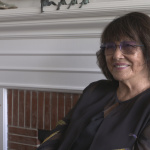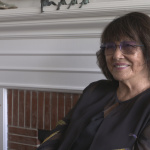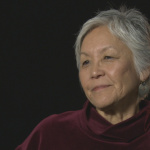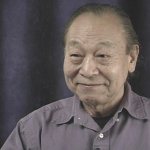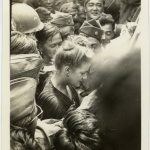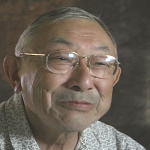Mako
| Name | Mako |
|---|---|
| Born | December 10 1933 |
| Died | July 21 2006 |
| Birth Location | Kobe, Japan |
| Generational Identifier |
Actor and co-founder of the East West Players theater company. Acclaimed and pioneering actor Mako was also one of the leading advocates for Asian Americans in the performing arts. The son of well-known Japanese refugee artists Taro Yashima and Mitsu Yashima , he was born Makoto Iwamatsu in Kobe, Japan, in 1933. Persecuted for their leftist views, his parents left Japan for the United States, leaving young Mako in the care of grandparents. They sent for him in New York ten years later.
Initially studying to be an architect, Mako got hooked on theater when a friend asked him to help with set design and lighting for an off-Broadway play. After serving in the military in Korea and Japan, he moved to California, studying theater and the Pasadena Playhouse. He appeared in many TV roles in the early 1960s, playing Asian characters in shows like McHale's Navy and Hawaiian Eye and also worked in theater. His breakthrough movie role was in The Sand Pebbles , playing a Chinese character named Po-han. He was nominated for a best supporting actor Academy Award for this role.
In 1965, he was one of the co-founders of East West Players in Los Angeles, the first Asian American theater company, and became its artistic director. Under his leadership, East West Players provided opportunities for Asian American playwrights and allowed Asian American actors to perform in both mainstream plays and plays depicting the Asian American experience. In 1981, he dedicated the entire season to plays centered on the Japanese American incarceration experience to coincide with the hearings of the Commission on Wartime Relocation and Internment of Civilians , including Wakako Yamauchi's 12-1-A , Dom Magwili's Christmas in Camp , Edward Sakamoto's Pilgrimage , and Richard France's Station J . He continued as artistic director until 1989.
In 1976, he landed the part of the Reciter in Stephen Sondheim's Pacific Overtures on Broadway, for which he was nominated for a Tony Award. He continued to appear in Hollywood films, Japanese productions, and, towards the end of his life, as a voiceover actor in the animated shows Samurai Jack and Avatar: The Last Airbender .
He died of esophageal cancer in 2006 at the age of 72.
For More Information
Finding Aid for The East West Players Records, 1965–1992, UCLA Library, Performing Arts Special Collections, http://www.oac.cdlib.org/findaid/ark:/13030/tf1489n74f/entire_text/ .
Garcia, Roger, and Nora Lee. "The Architect: Interview with Mako." In Out of the Shadows: Asians in American Cinema . Edited by Roger Garcia. Milano, Italy: Olivares, 2001. 108–11.
Kurahashi, Yuko. Asian American Culture on Stage: The History of the East West Players . New York: Garland Publishing, Inc., 1999.
Morioka-Steffens, Tamayo Irene. "Asian Pacific American Identities: An Historical Perspective Through the Theatre Productions of the East West Players, 1965 to 2000. Ph.D. dissertation, Claremont Graduate School, 2003.
Pulvers, Roger. "Mako: The Japanese-American Actor Who Fought Racist Stereotypes." The Japan Times , September 18, 2011, http://www.japantimes.co.jp/opinion/2011/09/18/opinion/mako-the-japanese-american-actor-who-fought-racist-stereotypes/#.Ub5tGOAlx8s .
Stewart, Jocelyn Y. "Mako, 72; Actor Opened Door for Asian Americans." Los Angeles Times , July 23, 2006, http://articles.latimes.com/2006/jul/23/local/me-mako23 .
Yashima, Mitsu. "Letter to Mako to Meet Again." Common Ground 9.3 (Spring 1949): 41–46. http://www.unz.org/Pub/CommonGround-1949q1-00041 . [Letter written to Mako by his mother on the eve of his coming to the U.S. to join her.]
Last updated Jan. 22, 2014, 6:37 p.m..

